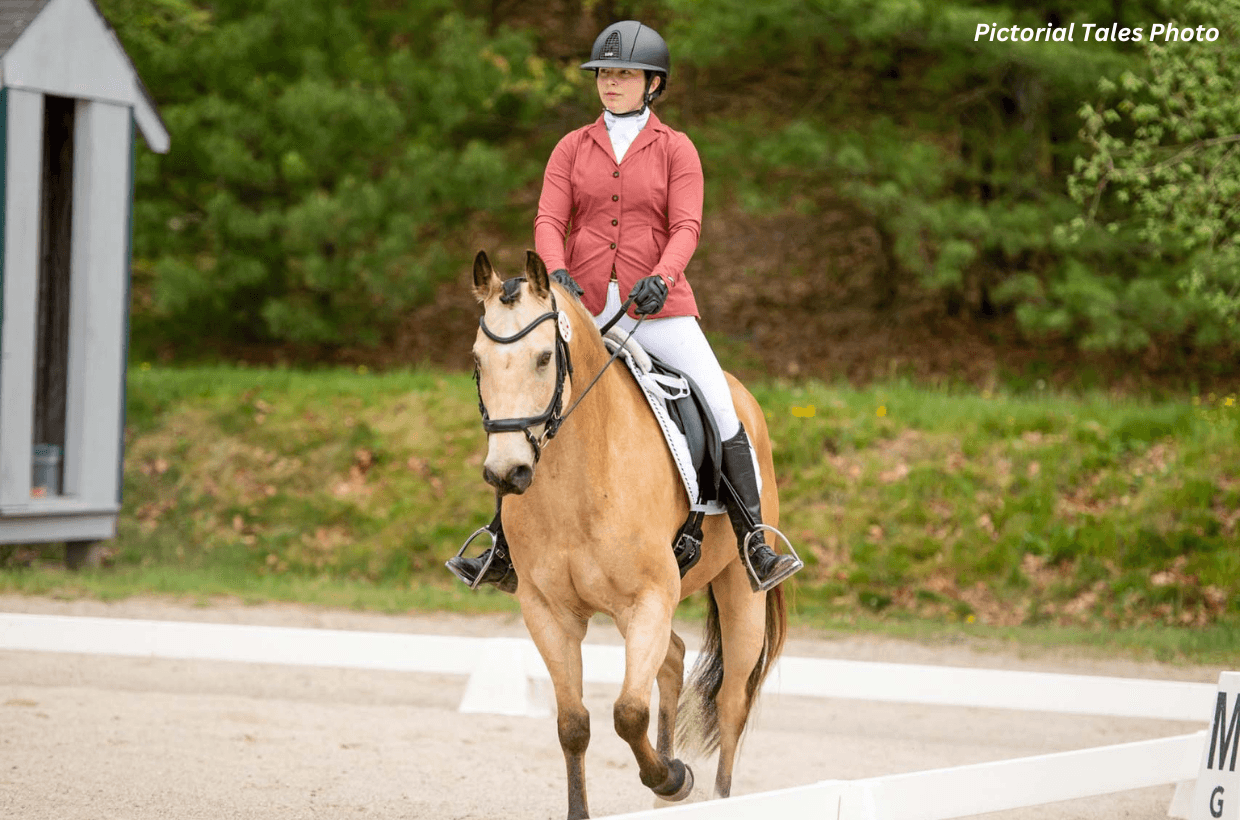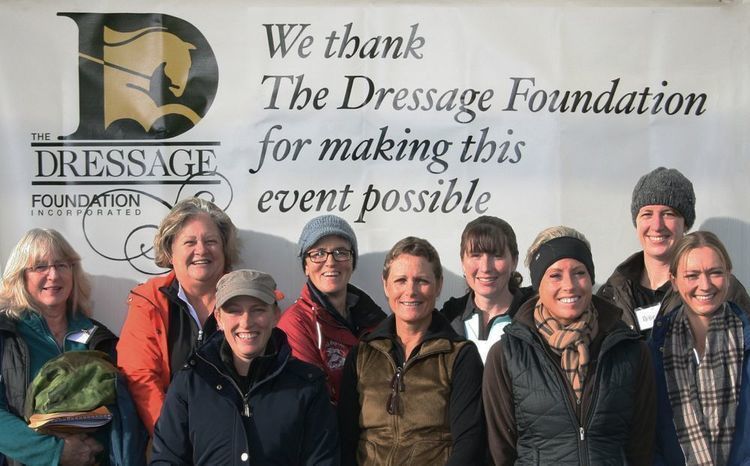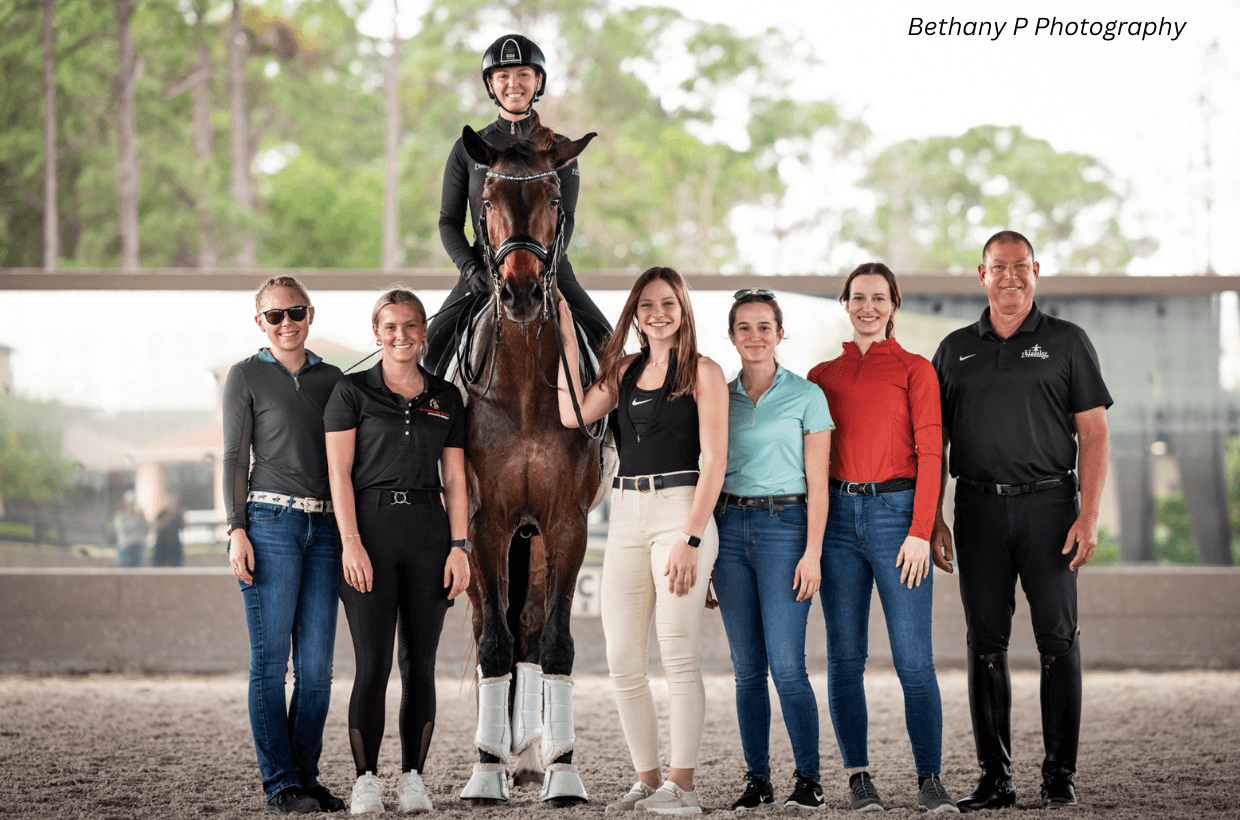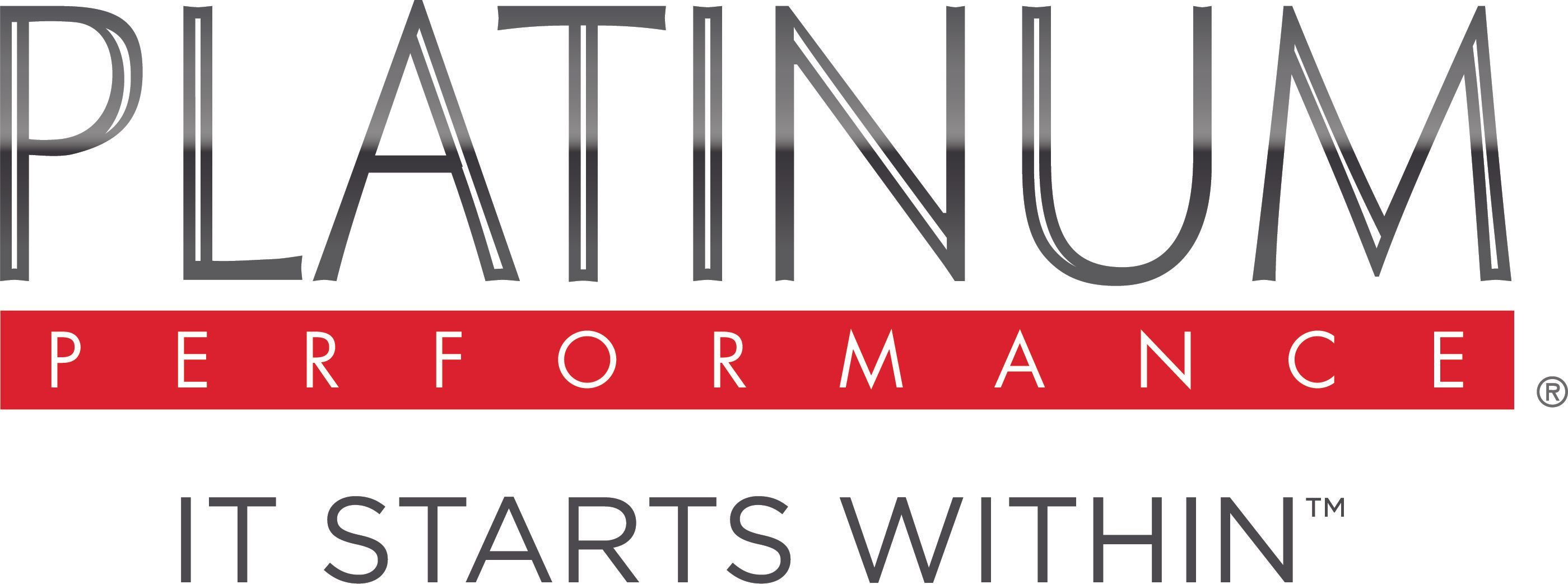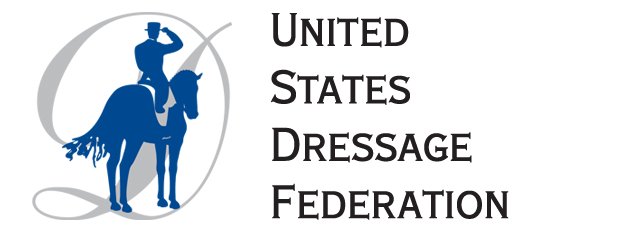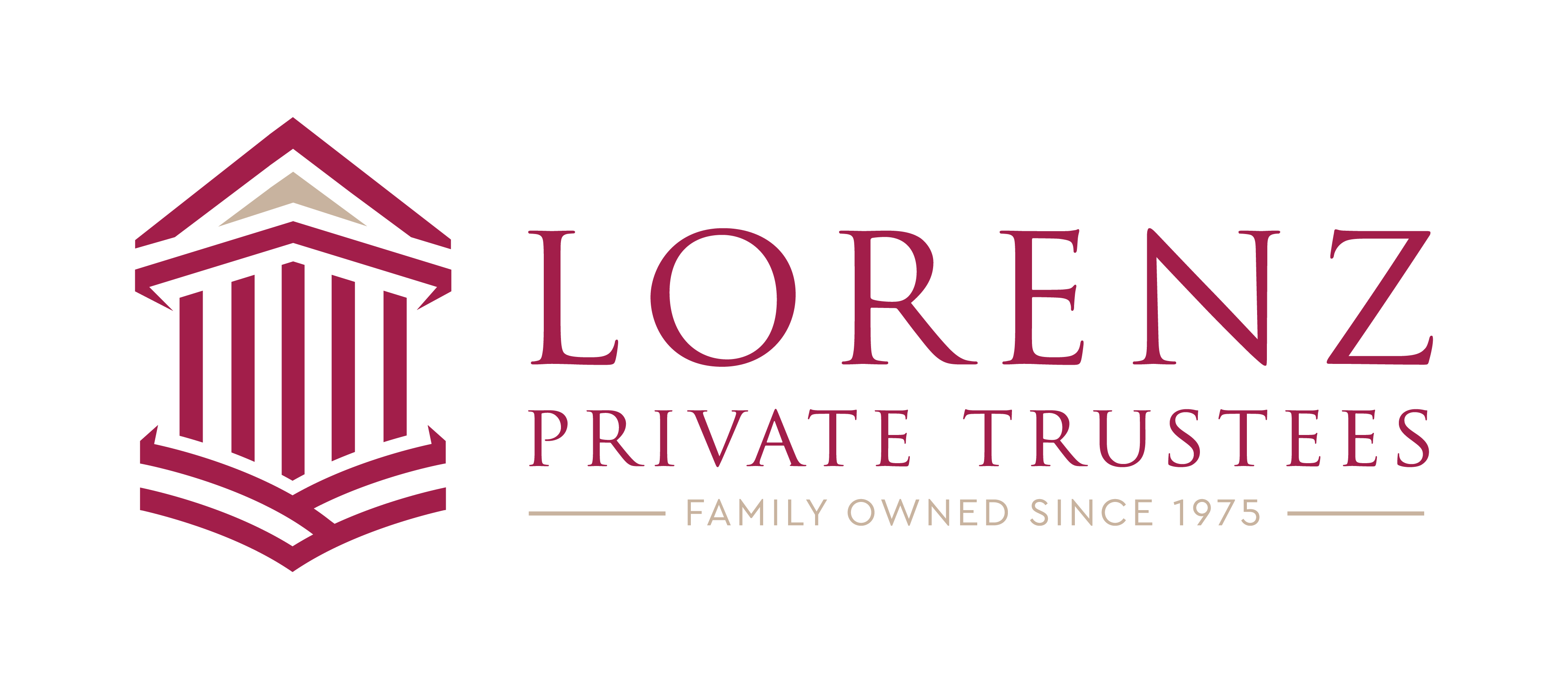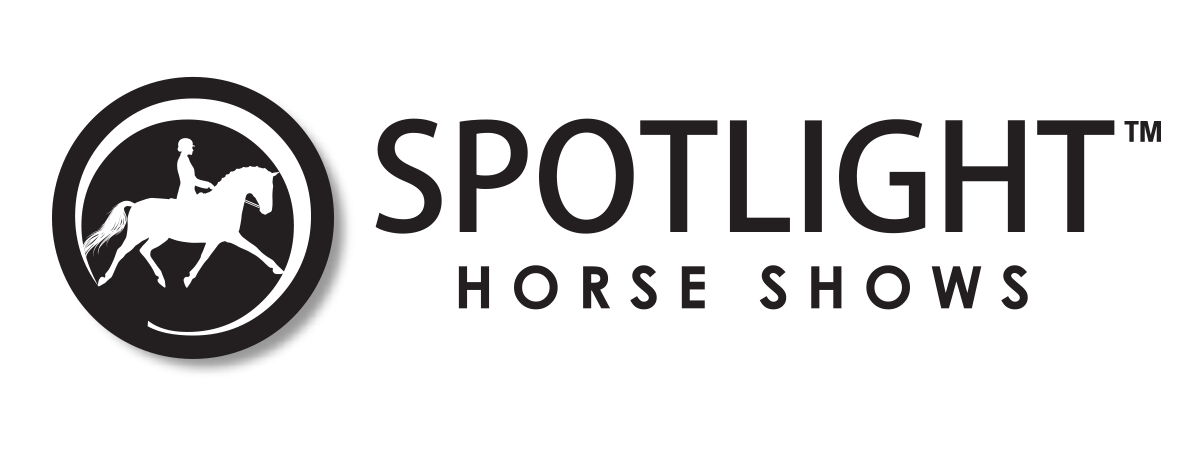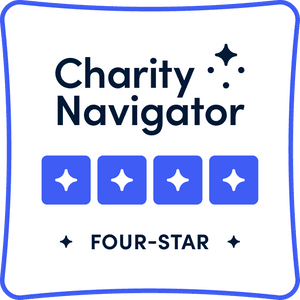2015 Fritz Recipient: Bailey McCallum

Photo by Leah Strid
“Luck is when preparation and opportunity meet.”
Christine Traurig, quoting the Roman philosopher Seneca, took a moment to let that sink in. It was one small piece of the endless flow of wisdom presented to a dynamic group of young professionals during the 2016 Young Rider Graduate program. Personally, I can’t help but feel that it’s the perfect quote to encompass the opportunity presented to us at the Program. I count myself very lucky to have been granted the chance to participate at a time in my life when I was prepared to take full advantage.
Like every other rider I know, I am used to coming home from shows or clinics fired up, chock full of ideas for the future, laying out plans for training and lesson programs. I am not, however, accustomed to returning from two full days of lectures (not one live horse in sight) and feeling completely inspired, energized, and impatient to get to work. Over the course of the weekend I was treated to lectures from 18 professionals connected with or working in the dressage industry. When I opened a Word Document at 7:30 AM on Saturday morning I certainly didn’t expect to come away with 11 pages of single spaced notes and a thick sheaf of paper scribbles by 4:00 PM on Sunday. Though every bit of it is important and relevant, I’ve decided to share the aspects of several of the lectures that resonated the most with me. (As indicated in my notes by bold/italicized/underlined lettering, asterisks, exclamation points, an embarrassing amount of smiley faces, and the occasional note-to-self of “OMG IKR!?!” or “DO NOT FORGET THIS!”)
Here is some of what I learned:
- Do this for the love of the horses. No other reason is worth it. This was said many, many times. We all know that working with horses can be difficult, time consuming, expensive, and occasionally heartbreaking. If you only want to ride dressage because you think you look super awesome in a shadbelly, this is not the sport for you. It takes years of hard work to become a successful dressage trainer and rider and if you don’t enjoy those years, the six minutes you spend in the ring won’t be worth it. More importantly, Dr. Kraig Kulikowski, D.V.M. and Christine Traurig, Olympian and USEF Young Horse Coach both spoke of the responsibility we have to the horses we ride and train. You are responsible for the training you put on a horse. Make absolutely sure that what you are teaching the horses and the way you work them will help to guarantee them a long, healthy, happy, and useful life.
- Treat people well. Be honest and ethical and enjoy your work. Allyn Mann, Director of the Animal Health Division for Luitpold Pharmaceuticals, started us off on Saturday morning with a discussion on sponsorships. He spoke at length about how to cultivate lasting relationships with others in the industry and what sort of people attract sponsors. His main point was this: people are drawn to those who show a clear joy for their work, who are honest, loyal, and show their gratitude for the opportunities offered to them. Rebecca Hart, Para-Olympian and six time USEF National Para-Equestrian Champion and Kim Boyer, Owner of Hampton Green Farms, were also emphatic about the need to always be transparent with and loyal to those who sponsor you. Always follow through on your promises, communicate with your sponsors, and give credit where it is due.
- Always act professionally; treat your name as a brand. Almost every speaker who stood in front of us throughout the program expressed the importance of acting professionally at all times. Your reputation becomes your livelihood in our industry and now with social media platforms and google search, it’s very easy to find out where your priorities lie. Be professional on social media, try to show your joy for the job and the industry in the way you communicate with the world. Be completely aware of the type of equestrian you advertise when you go about your day-to-day business. Roz Kinstler summed it up quite nicely when she said that we should always be aware of our turnout. I took that as an analogy for life. Dirty tack and muddy boots never look professional, even if it’s just an everyday lesson. Be on time, own up to your mistakes, and pay it forward when and if you can.
- Connect with others. Success in this industry, especially for young up-and-coming professionals, often has everything to do with the connections you make and the impressions you leave behind. Lendon Gray told us the story of how she ended up riding in the Olympics. Imagine our surprise when she revealed that her journey began through a casual discussion with an acquaintance who then thought of her months later. Her opportunity came because of the positive impression she left with someone she had only just met. The professionals in our industry are extremely interconnected. You truly never know what might come of a conversation you have with someone standing next to you in the warm up, who might overhear your praise your horse (even after a not-so-elegant ride), or who might say nice things about you to the right people. Shake hands, introduce yourself, present yourself in a positive light and, as always, love your job.
- Never stop learning, work really hard, and take your opportunities when they come to you. Lendon began her lecture by asking all of us, “What have you been working on all year that should have been fixed by now?” We all kind of chuckled guiltily and avoided eye contact (I stared down at my traitorous left hand which sometimes seems to be riding a very different horse from the one the rest of me is riding). “Don’t let anyone tell you the same thing twice.” (More guilt. Sorry Karen). Read all the time; learn from several different sources. Watch everyone. Learn how to ride and also learn how not to ride. Experiment and find out what works and what doesn’t. And as Tuny Page told us, “Be brave.” It all comes down to the fact that if you work hard now, if you spend your time and effort improving yourself as much as you can, you will be better prepared to succeed when opportunities come to you.
- Be grateful for what you’re given and what you learn, but don’t let yourself be taken advantage of. There was also a note from several of our speakers about self-preservation. Yes, you must work really, really hard to make it to the top in this industry. You should be grateful for the callouses on your hands if that’s what pays for your lessons and establishes your reputation as a hard-working individual. However, if you find yourself in a situation where you just aren’t learning anymore, or you are being taken advantage of, move on. Hard work comes before the payoff but don’t let yourself be burned out. Take on what you can handle because if you don’t, the quality of your work will suffer and in the end, the horses and students suffer the most.
These are only the highlights of a weekend that has been an important step in my career. I learned almost as much from my peers as I did from our speakers and after learning how accomplished and passionate they are about our sport, I feel honored to have been chosen to sit among them for this experience. More than anything I want to encourage other young riders who are eligible to apply for this program when the opportunity presents itself. I imagine it will only grow better every year but this forum, where young professionals are encouraged to reach out to their role models for guidance is so important and already acts as a positive stimulus in our industry.
This opportunity was only made possible for me when I received the Captain Jack Fritz Young Professionals Grant. I would like to thank The Dressage Foundation and Carol Lavell for making this possibility a reality. I would, of course, like to thank each and every one of our speakers for their incredibly insightful advice, for being stellar role models for us, and, most of all, for their kind and encouraging words as we transition from young equestrians into professionals. And I’d like to thank my peers from the program. You’ve inspired me. If luck is where preparation meets opportunity then I must have done something right because I feel very lucky to have met you all.

